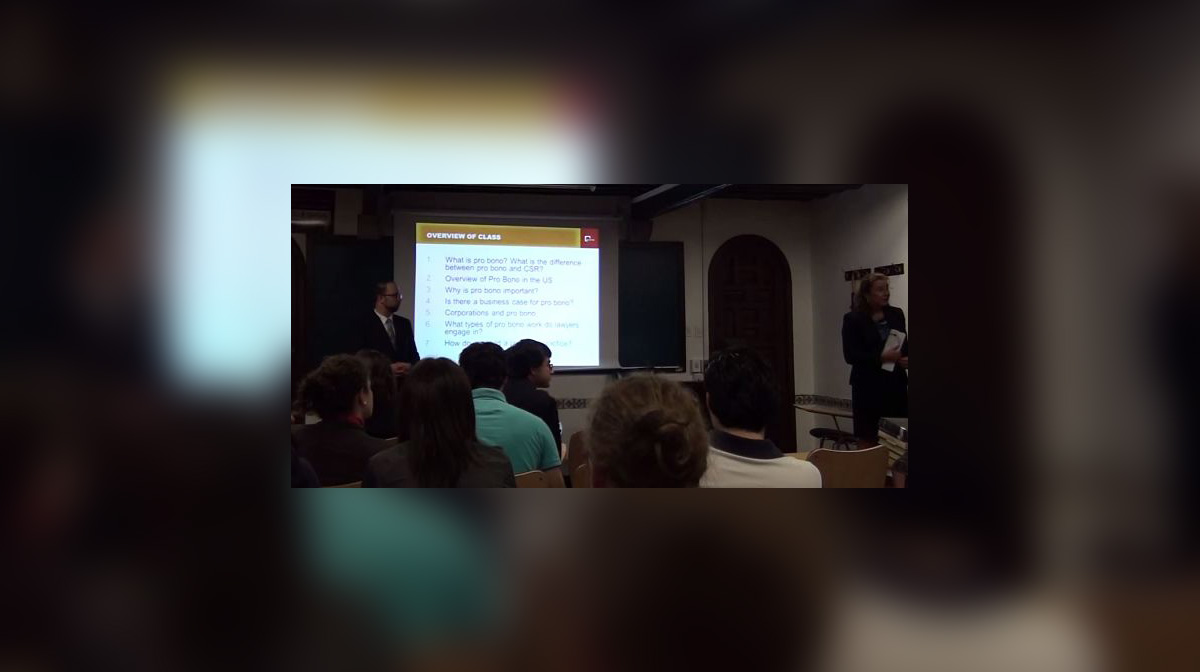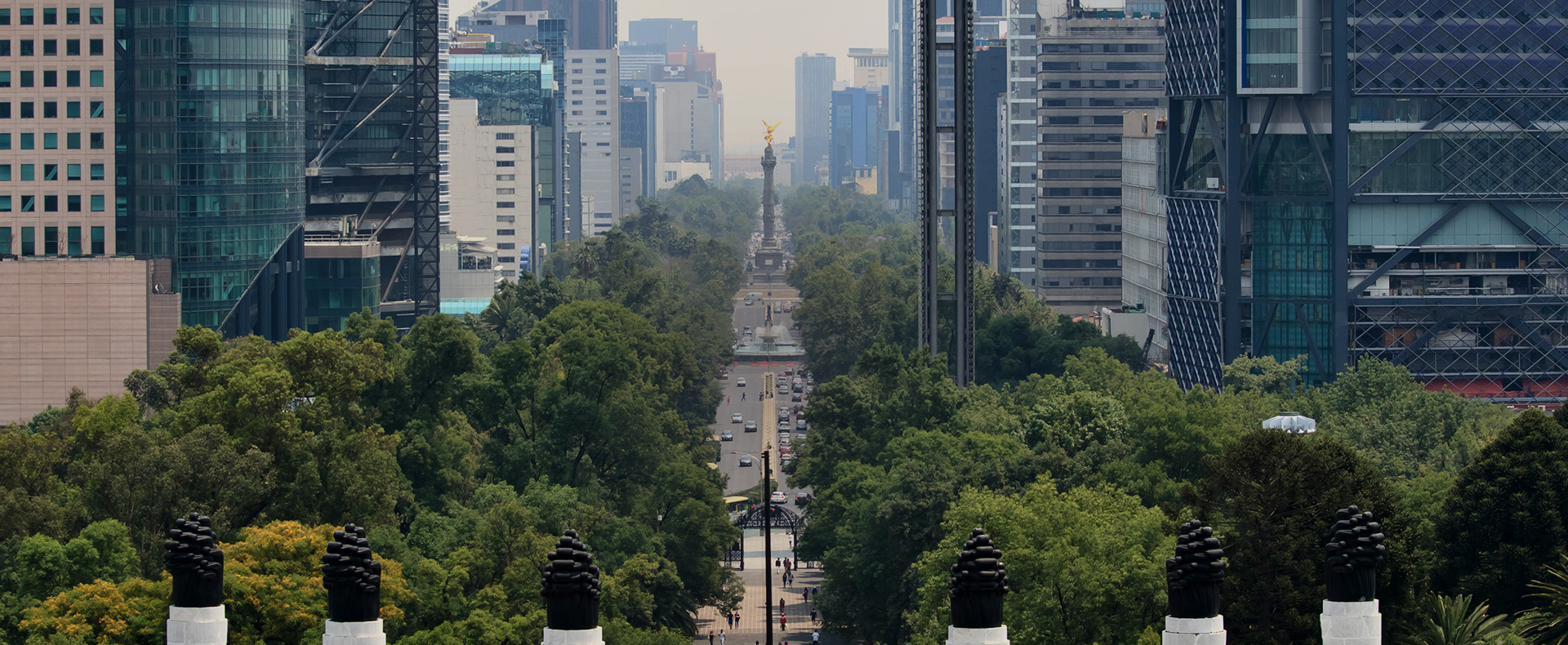Pro Bono Blossoms with Appleseed Mexico

Posted on 15 October 2014 by Jesse Medlong
Many of us take pro bono for granted. In the United States, pro bono is such a fixture in the legal profession that we can’t really imagine being lawyers without it. And most of us wouldn’t want to. This is what we mean when we talk about a “culture of pro bono.” But while we take that culture for granted, the concept is still taking hold in many places.
New Perimeter—DLA Piper’s global pro bono initiative—has made encouraging that culture a cornerstone of its efforts around the world. This work recently took me to Universidad Panamericana in Mexico City, where Lisa Dewey and I taught a class of law students about pro bono.
The training session was part of our longstanding partnership with Appleseed Mexico, a nonprofit dedicated to achieving social justice. New Perimeter has been teaming with Appleseed Mexico to teach pro bono in Mexico since 2008. Through these sessions, we work with Appleseed Mexico to help instill the pro bono culture in the next generation of Mexican lawyers.
Despite my generally optimistic nature, it can be hard to believe when you’re standing in front of those students that you’re really making a difference. Think back to your experiences as a student (or, if you’ve had them, as a teacher), and you know just how great is the gulf between the podium and the pupils. So it was nice being able to face that class, encouraged by the knowledge that courses like these do, in fact, make an impact.
Earlier that day, we had met with two of our counterparts from Appleseed Mexico for lunch. They had invited another local human-rights lawyer. After introductions and some polite conversation, Paula (the human-rights lawyer) told us that she had been a student in one of New Perimeter’s first classes in Mexico. Inspired by what she learned, Paula went on to earn an LLM from Columbia University, and then to found a human rights NGO dedicated to conducting impact litigation and lobbying for human rights standards in Mexico. Her eyes began to well as she turned to Lisa and explained that she had asked to attend the lunch because she wanted to tell Lisa in person how the course on pro bono had changed her perspective and, in turn, her life.
I was fortunate enough to witness this exchange. And its memory doused my doubts as we taught our class the ins and outs of pro bono in the US, the importance of pro bono, and how lawyers from various sectors can engage in pro bono. It would have been a great experience in any event. But it was phenomenal being able to go into it with a sense that, however incrementally, this work helps make the world a better and more inspired place.
Not every country has a well-developed culture of pro bono. But every country needs one. Nowhere on Earth does the supply of legal services meet the need. The students from that class may go on to found NGOs or to forge pro bono programs at firms or at in-house legal departments, and they will help Mexico’s legal profession address that unmet need. Appleseed Mexico and it’s work through these classes is sowing the seeds of the pro bono culture. And perhaps I too will someday be fortunate enough to see its harvest firsthand.
Supporting the Growth of Pro Bono in Mexico
